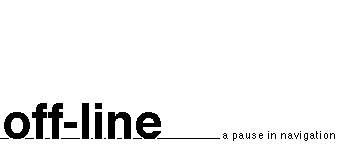Since mainstream media started fussing about the
internet, seven or eight years ago, there have been
alternating phases of hype and hangover. Now the two trends
are mingled, in a schizophrenic mixture of
“e-xaggerated” enthusiasm about often irrelevant
“miracles” and equally inflated stories of dangers
and catastrophes. That doesn’t help anyone to understand what
is really going on – and of course it’s a very poor base
for the development of effective strategies.
In the same issue of the magazine where this article
appeared in print I published a summary of some trend
analyses – worldwide, in Europe and in Italy – that can
be found in the data section of
this site. Statistics are ofren unreliable – and numbers,
per se, don’t mean much. But when trends are analyzed and
compared they can be quite useful. Looking at some simple facts
can help to have a clearer mind.
The soothsayers of doom, who can’t tell the difference
between the stock exchange bubble and the internet, are
wrong. The net is growing, developing, expanding and evolving
as strongly as ever. And that has nothing to do with the
“broadband fiasco”, because
the development of the internet is based on content, dialogue,
people interacting with each other, etc. – not bandwidth
(of which we have more than we need if we know how to stay away
from useless clutter).
On the other hand, not everything is growing as fast as
the hype suggests. For instance, the number of people online
in Italy had slower growth in 2001 than in previous years.
That is, in part, a self-fulfilling prophecy (people read
about “new economy” failures and are led to believe
that the internet doesn’t work) but is also a result of hype
(overpromises lead to disappointment.) There are indications
that the same sort of thing is happening in other countries.
There is news that has nothing to do with the internet
but helps to understand the real reasons behind the stock
exchange flutters. The Enron mess is only one of many. And proves,
once again, that the problem isn’t only in the so-called
“new economy.” It isn’t even “new”
(see Robber Barons.)
There are confusing reports, as always, about.
“electronic commerce”. In year 2001 there was less
hype about fantastic expectations for Christmas sales. But,
after the fact, there were contradictory reports. 15 percent
growth, compared to a year earlier, isn’t much –
but it’s not discouraging. Some reported it as a monumental
success, others as a catastrophe. Schizophrenia, again. It’s
a bit more interesting to look into what people bought online.
Software, hardware, books (with Amazon, of course, leading.)
The same as three or four years earlier. What’s missing is
something new and interesting in e-commerce.
A year ago, sometimes, I used to say: «if you must
copy someone, copy Amazon or Google.» But imitation
isn’t a good strategy. We should learn from other people’s
experience (form their mistakes as much as from their good
ideas) and try to do better. The strength in the internet
is diversity. The more we concentrate on what we know, and we
can do, better than anyone else, the more successful we shall be
(and the harder it will be for others to imitate us.) And if
so many others are plagued with schizophrenia or cowardly
imitation, there are even greater opportunities for
clear-minded, unique and consistent strategies.



